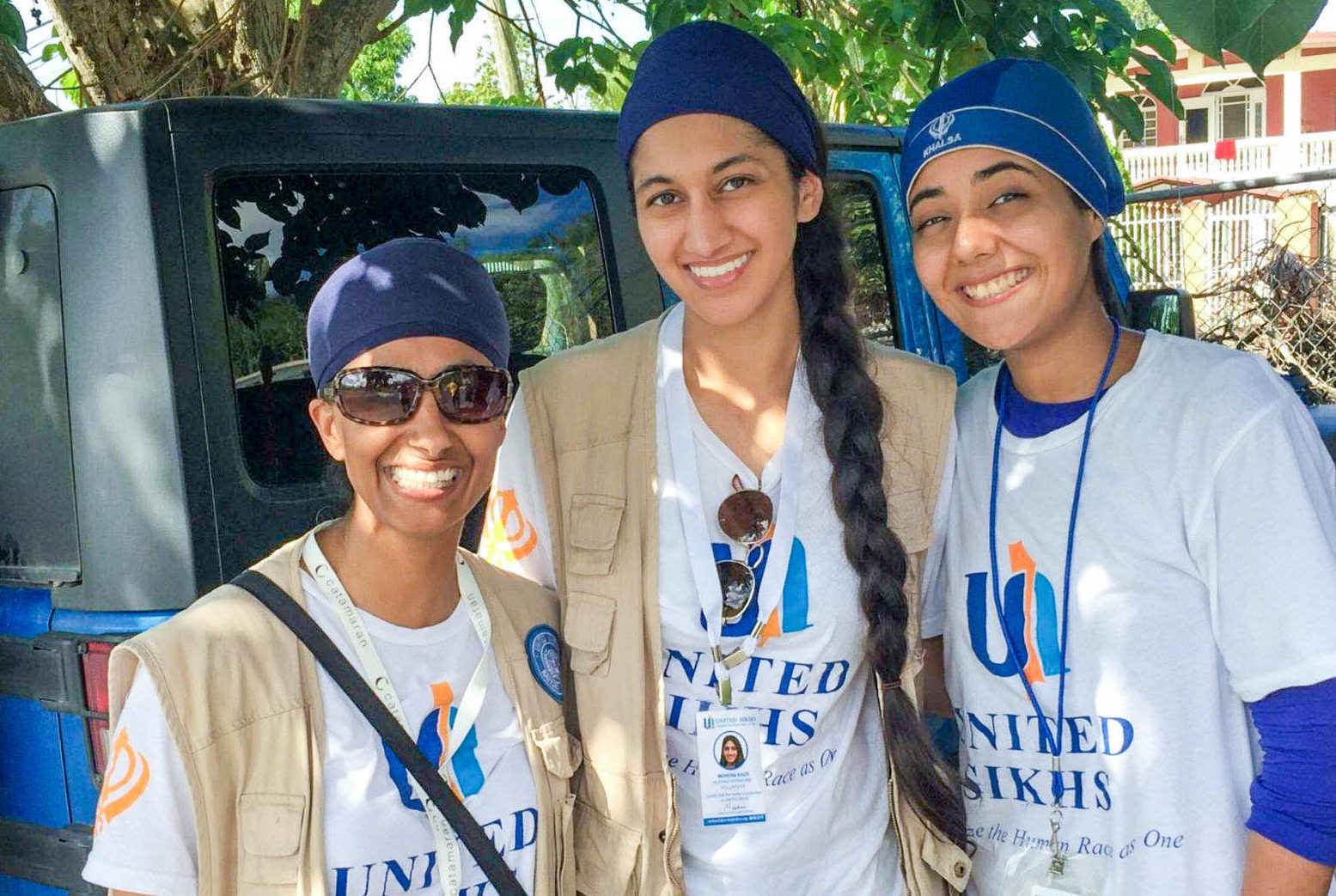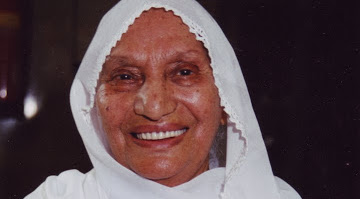On September 19, 2017 an earthquake of magnitude 7.1 hit Mexico near the city of Puebla. The earthquake caused the collapse of more than 40 buildings, 370 people were killed, and more than 6,000 were injured. Immediately following the earthquake, UNITED SIKHS mobilized volunteers on the ground to bring relief to particularly hard-hit areas in rural Mexico. The very first volunteers on the ground were Kaurs and they worked to provide langar and assistance to villages near the epicenter. UNITED SIKHS continues to do seva in Mexico and other disaster areas across the globe. Balpreet Kaur interviewed several Sikh women to shed light on their experiences with humanitarian aid, and as a way encourage the Sikh community to support their work.
UNITED SIKHS is a UN-affiliated, international non-profit, non-governmental, humanitarian relief, human development and advocacy organization, aimed at empowering those in need, especially disadvantaged and minority communities across the world. They have served in countries such as Australia, Bangladesh, Burma, Canada, Malaysia, Haiti, India, Indonesia, Nepal, Pakistan, Philippines, Syria, Thailand, and the United States.
Volunteer Profile: Lakhwinder Kaur of Malaysia
In 2004 Lakhwinder, a Malaysian Sikh woman, volunteered with UNITED SIKHS’ Singapore Tsunami Mission. In a few short years, she would help create the natural disaster counseling arm of the organization. Lakhwinder was inspired by Menjindarpal Kaur’s (the legal director of UNITED SIKHS) passion and commitment to human rights & seva. The message of UNITED SIKHS also resonated with her – that they are willing to do whatever it takes to help anyone in need, at any time.
Since then, she has traveled to Bangladesh, Nepal, Pakistan, some countries in Africa for humanitarian aid work. When in Bangladesh, she met many Rohingya women who were fleeing ethnic cleansing in their home country of Burma.
“They faced threats of sexual violence, exploitation, and immense trauma,” Lakhwinder said. “They also lacked opportunities. The Rohingya crisis is the worst I’ve seen in terms of trauma and violence. The children are going to be living with this consciousness. How will they get emotional support?”
Lakhwinder was so significantly impacted by the situation she saw in Bangladesh that she could not sleep and suffered from anxiety – feeling numb and detached. “It would hurt my heart,” she said. So, she went back home to Singapore for two weeks of recovery.
Upon returning to Bangladesh, Lakhwinder has engaged in a variety of seva projects such as counseling, setting up water pumps, connecting with local organizations, distributing rice, serving langar (over 1,000,000 meals), advocating for those with disabilities, and connecting refugees to doctors.
She also spends a lot of time working in an orphanage. Its poor conditions lead Lakhwinder to start a sports program, a “Clothe your Child” campaign, and a program to help girls with menstruation.
Lakhwinder said it doesn’t matter if she is helping a Muslim refugee or someone in the Sikh community. “A person is a person,” she said. “If this happened to me, wouldn’t I want others to help me?”
Volunteer Profile: Jasvir Kaur of Chicago
Jasvir Kaur’s first experience with disaster relief was in the aftermath of the 2004 Thailand Tsunami. “UNITED SIKHS gave me a platform to lead a group of medical volunteers to help out.”
“It was tough because you have to deal with death and chaos,” said Jasvir. It was also challenging due to organizational tensions. “There were a lot of NGO [non-governmental organizations] politics and many of them were fighting for the limelight. I really saw the houmai (ego) come out. The selfless part of seva was lacking.”
Jasvir took two doctors from the United States and teamed up with local Thais to find seva opportunities. “We had to scope out the realities and find organizations with similar objectives,” she said. Jasvir said they had to network and learn how to work with locals as well as being creative and resourceful. “We had to make do with what we had around us.”
When Jasvir was younger, she committed herself to seva. “I made a promise to myself that going forward, wherever my money goes, I would go with. Seva is not just about money but also time that we spend to hold organizations accountable to their mission,” she said. “Giving money is good. But I wanted to be there to serve with my hands and give my time. People know you care about them when you listen to them and do the work with your hands.”
Now, Jasvir goes on different missions once a year. “They bring me back to life, in a very simple way of doing things. We think we have so many issues and problems. When you see poverty, and you work with those who don’t have much yet they have innate happiness in their smile, it makes me think, ‘What am I worried about?’ “
Since her trip to Thailand, Jasvir has joined UNITED SIKHS several times in a humanitarian capacity. She went to Haiti in 2010 to help with earthquake relief, to Florida in 2017 to help with Hurricane Irma relief, and again to Puerto Rico in 2017 to help with Hurricane Maria relief. Each experience was unique.
“Irma wasn’t too bad because there were resources that helped with disaster relief. Puerto Rico felt isolated and there was a limited supplies of food, no electricity, and there were infrastructure problems. There were very few volunteers, especially in rural areas as international organizations focused on the big cities. Haiti was much worse worse than all four of the missions because it was already so impoverished that the earthquake took everything from the locals.”
Jasvir feels that UNITED SIKHS has empowered her to lead. “Seva is all about providing resources and educating people on how to take care of themselves and their communities,” she said. “I don’t want to leave a mission without empowering people.”
Jasvir Kaur says that her Sikhi inspires her seva. “Hearing ardas, the history of our Gurus, the history of our sangat – particularly the story of Bhai Kanhaiya – drive me to serve. They were real people, like us. I try to strive to be where they were.”
While most volunteers in general are mostly women, Jasvir has noticed a different trend for UNITED SIKHS’ volunteers on the ground. “I hardly see any Sikh females volunteer,” she said. She wants other Kaurs to know: “Guru Sahib will empower you and save you in tough situations. Don’t limit yourselves. Believe in yourself. Disaster relief is a big word, but don’t let it overwhelm you….We have it in us and we don’t realize. Think of Mai Bhago, she saw a need and made sure to heed that call. If you think beyond yourself and there is a calling, you will answer that calling, and you will find so much of yourself in the calling and recreate yourself from it.”
To learn more about United Sikhs, or to find out how to volunteer or donate visit: www.unitedsikhs.org/donate
Interviews were conducted by Balpreet Kaur.
Special thanks to Surmeet Kaur for her consultation.
Feature photo by UNITED SIKHS.





No Comments